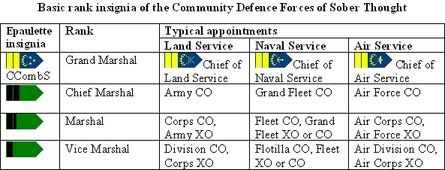Community Vessel Landing Ship
| Naval Service Community Vessel | ||||||||||||||||||||
|---|---|---|---|---|---|---|---|---|---|---|---|---|---|---|---|---|---|---|---|---|
| ||||||||||||||||||||
|
| ||||||||||||||||||||
In order to fulfill its function of transporting Land Service troops of the Community Defence Forces under fire and landing on hostile shores, the Naval Service operates nine landing craft, similar to the Brooke Marine 93 m class assault ship, for each one hundred million population of Sober Thought. They are named L-1 through L-9 in the first wave, L-10 through L-18 in the second, etc. For major troop transports not under threat of attack, the Naval Service uses much larger transports.
Compared to its larger counterpart, the landing ship is well armed against naval service and aerial attack. However, they still rely on their escorts like cruisers, destroyers and frigates for force protection.
These ships are designed to land a small amphibious force of two marine heavy armoured infantry assault companies (including 12 tanks) under fire and a minimal support element. Against an ill-armed enemy, a single landing ship alone is sufficient, but normally it has an naval escort. When used in groups of other landing ships or troop transports, they are always escorted.

